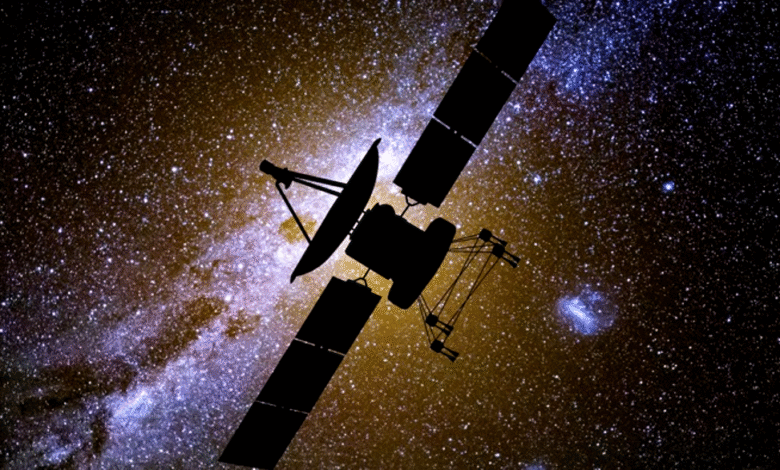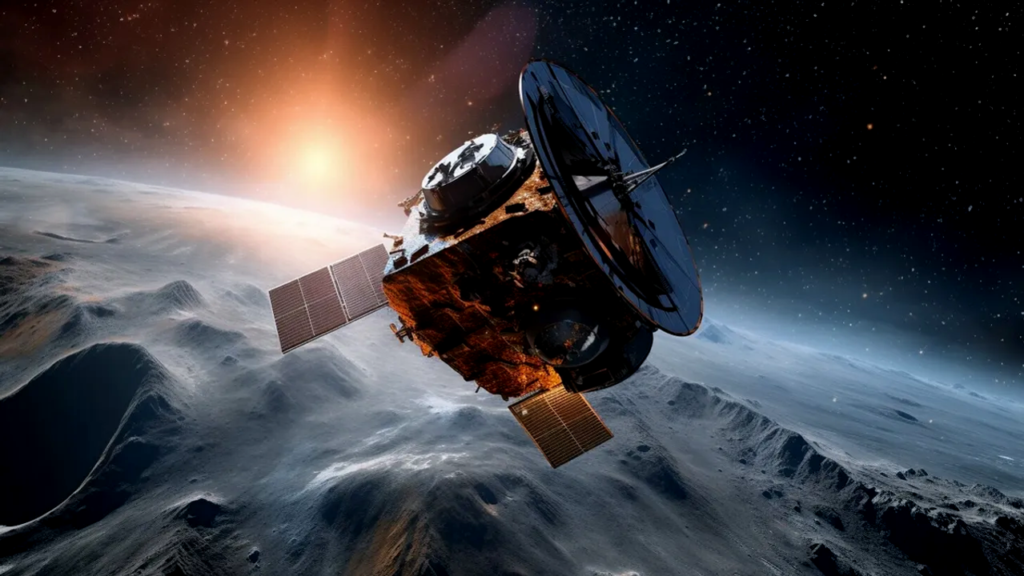
Space exploration has always been a subject of fascination and wonder for humanity. From the early days of gazing at the stars to the monumental achievements of landing on the moon, the exploration of space has been primarily driven by government agencies such as NASA and Roscosmos. However, in recent years, there has been a significant shift towards the commercialization of space. What was once the domain of nations and government entities is now becoming a playground for private companies and entrepreneurs.
Read More: The Business of Tech: Insights into the Corporate World
The Business of Space: Commercializing the Final Frontier

The commercialization business of space refers to the involvement of private companies in space exploration, satellite deployment, space tourism, asteroid mining, and other space-related activities for commercial gain. This shift is driven by advances in technology, decreasing launch costs, and the recognition of the economic potential of space.
History of Space Exploration
Space exploration has a rich history dating back to the launch of the first artificial satellite, Sputnik 1, by the Soviet Union in 1957. This milestone marked the beginning of the space race between the United States and the Soviet Union, culminating in the historic Apollo moon landings of the 1960s and 70s. These early missions were primarily driven by geopolitical motivations, with governments investing heavily in space programs to demonstrate technological prowess and assert dominance.
Rise of Commercial Space Ventures
The turn of the 21st century witnessed the emergence of private companies entering the space industry. Leading the pack is SpaceX, founded by Elon Musk in 2002. SpaceX revolutionized space transportation with its Falcon rockets and Dragon spacecraft, making space more accessible and affordable. The company’s success in launching satellites, resupplying the International Space Station (ISS), and landing reusable rockets has paved the way for a new era of commercial space exploration.
Satellite Constellations
One of the most visible manifestations of space commercialization is the deployment of satellite constellations. Companies like SpaceX, OneWeb, and Amazon are investing billions of dollars in launching thousands of satellites into low Earth orbit to provide global internet coverage. These mega-constellations promise to connect the unconnected and bridge the digital divide, but they also raise concerns about space debris and interference with astronomical observations.
Space Tourism
Space tourism is another lucrative market attracting the attention of commercial space ventures. Companies like Virgin Galactic and Blue Origin are developing spacecraft capable of carrying tourists on suborbital joyrides to the edge of the business of space. While the cost of a ticket remains prohibitively high for most, advancements in technology and economies of scale could eventually make space tourism more accessible to the masses.
Mining Asteroids and Lunar Resources
The prospect of mining asteroids and extracting resources from the moon has captured the imagination of entrepreneurs and investors. Asteroids are rich in valuable minerals such as platinum, gold, and rare earth metals, while the moon harbors water ice and other resources that could be used to sustain future space missions. Companies like Planetary Resources and Moon Express are pioneering efforts to harness these extraterrestrial resources for commercial gain.
Space-Based Manufacturing
The unique conditions of space, particularly microgravity, offer opportunities for advanced manufacturing processes. In orbit, materials can be produced with greater purity and precision than on Earth, leading to innovations in electronics, pharmaceuticals, and materials science. Companies like Made In Space have demonstrated the feasibility of space-based manufacturing with experiments conducted aboard the ISS.
Regulatory Challenges and Opportunities
As the commercial space industry expands, so too do the regulatory challenges. Governments must balance the promotion of innovation and economic growth with the need to ensure safety, security, and environmental protection. International cooperation and the development of clear legal frameworks will be essential to foster a sustainable and competitive business of space economy.
Environmental Concerns
While the business of space may seem vast and empty, it is not immune to human impact. The proliferation of satellites and the business of space debris poses risks to both space missions and the terrestrial environment. Additionally, the extraction of resources from celestial bodies could have unforeseen ecological consequences. It is imperative that commercial space activities are conducted responsibly and with environmental stewardship in mind.
Economic Implications
The commercialization of space has significant economic implications, from job creation to the development of new industries. Investment in space technology stimulates innovation and drives economic growth, benefiting not only spacefaring nations but also the global economy as a whole. The space industry is poised to become a key driver of economic activity in the 21st century.
Future Prospects
Looking ahead, the future of the business of space commercialization is filled with promise and uncertainty. Advances in technology, shifts in geopolitical dynamics, and evolving consumer demand will shape the trajectory of the industry. However, one thing is certain: the commercialization of space will continue to push the boundaries of human achievement and expand our understanding of the cosmos.
Collaborations and Partnerships
The exploration and exploitation of space require collaboration on a global scale. Governments, private companies, and international organizations must work together to overcome technical challenges, mitigate risks, and ensure the peaceful and sustainable use of outer space. Collaborative efforts such as the International Space Station serve as a model for future partnerships in space exploration.
Ethical Considerations
As we venture further into space, ethical considerations become increasingly important. Questions of ownership, equity, and responsibility must be addressed to ensure that the benefits of space exploration are shared equitably and that the rights of all stakeholders are respected. Ethical frameworks will play a crucial role in guiding the development of space policy and regulation.
Public Perception and Awareness

Public perception plays a crucial role in shaping the future of space exploration. While enthusiasm for the business of space travel is widespread, concerns about safety, cost, and environmental impact remain. Educating the public about the benefits and challenges of space commercialization is essential for garnering support and fostering informed decision-making.
Read More: Business in Digital Age: Strategies for Success
FAQs
- Is space tourism safe? Space tourism is still in its infancy, and safety remains a primary concern for companies and regulators. While significant strides have been made in spacecraft design and technology, there are inherent risks associated with space travel that must be addressed.
- How are satellite constellations impacting astronomy The proliferation of satellite constellations has raised concerns among astronomers due to their potential to interfere with observations and contribute to light pollution. Efforts are underway to mitigate these impacts through collaboration between astronomers and satellite operators.
- What are the ethical implications of asteroid mining Asteroid mining raises complex ethical questions regarding property rights, environmental sustainability, and the equitable distribution of resources. Balancing commercial interests with ethical considerations will be essential in shaping the future of asteroid mining.
- How can I invest in the space industry There are several ways to invest in the space industry, including purchasing stocks in publicly traded space companies, investing in space-focused exchange-traded funds (ETFs), or participating in private investment opportunities through venture capital firms.
- What role will governments play in regulating the commercial business of space activities Governments will play a crucial role in regulating the commercial business of space activities to ensure safety, security, and compliance with international law. Regulatory frameworks will need to evolve in response to the growing complexity and diversity of space ventures.
The Read More
The commercialization business of space represents a historic opportunity to unlock the economic, scientific, and cultural potential of the cosmos. From satellite constellations to space tourism, the possibilities are as vast as the universe itself. However, realizing these opportunities requires careful planning, collaboration, and ethical stewardship. By embracing the challenges and opportunities of space commercialization, humanity can chart a course toward a brighter future among the stars.








2 Comments